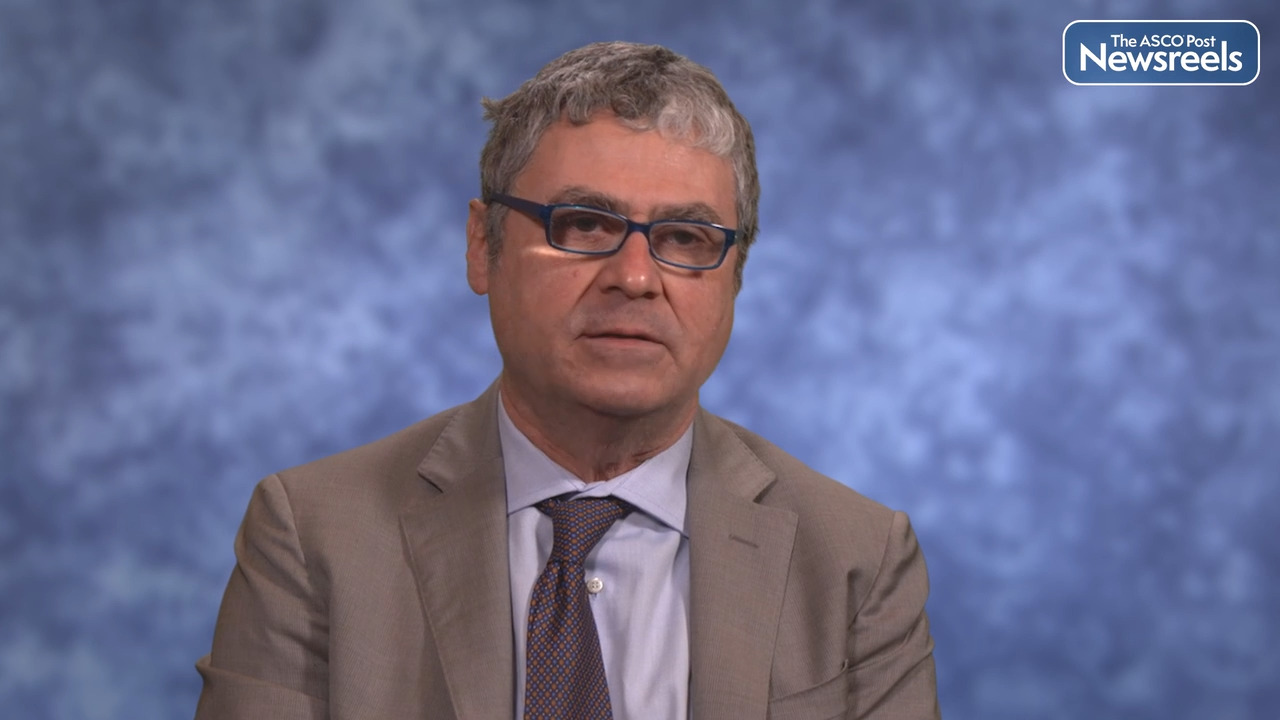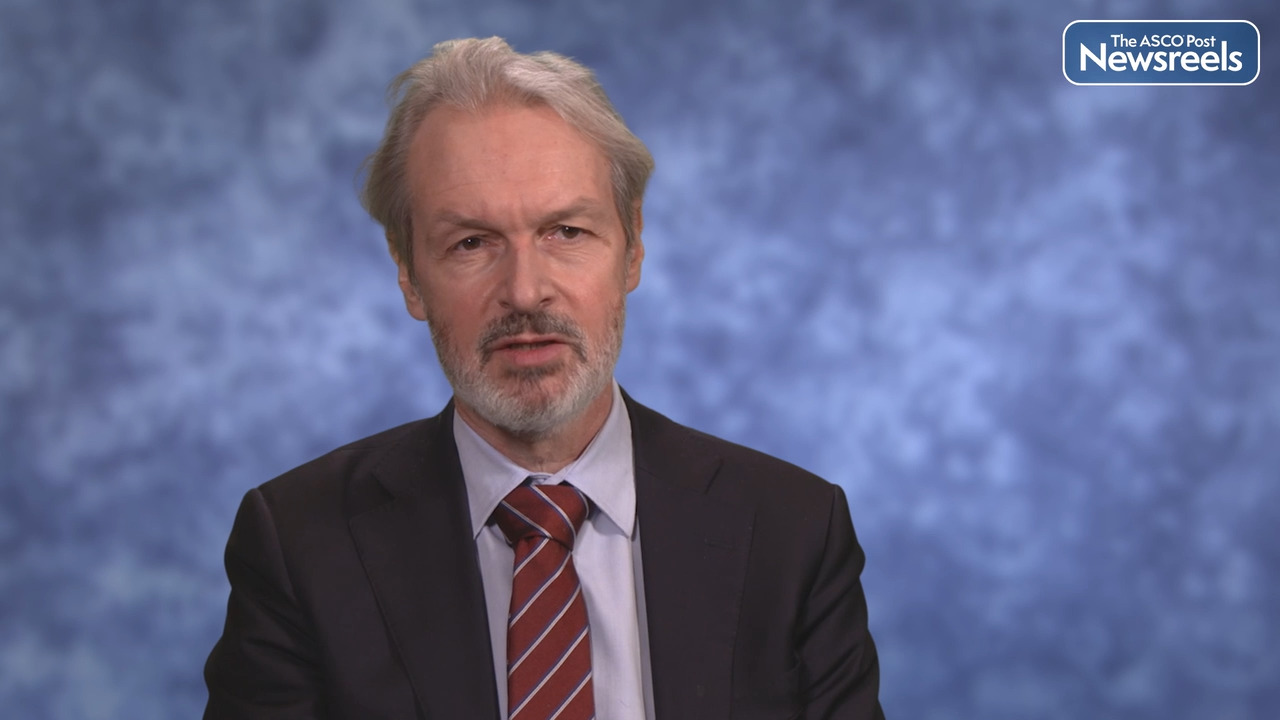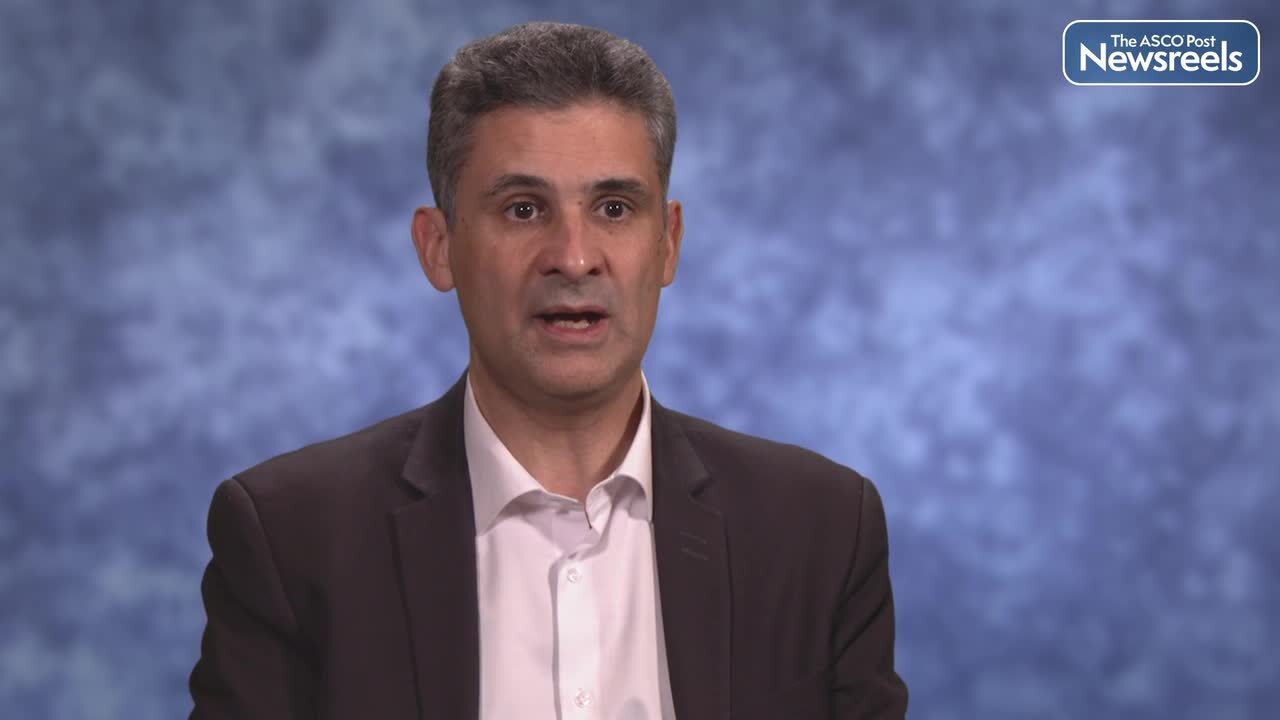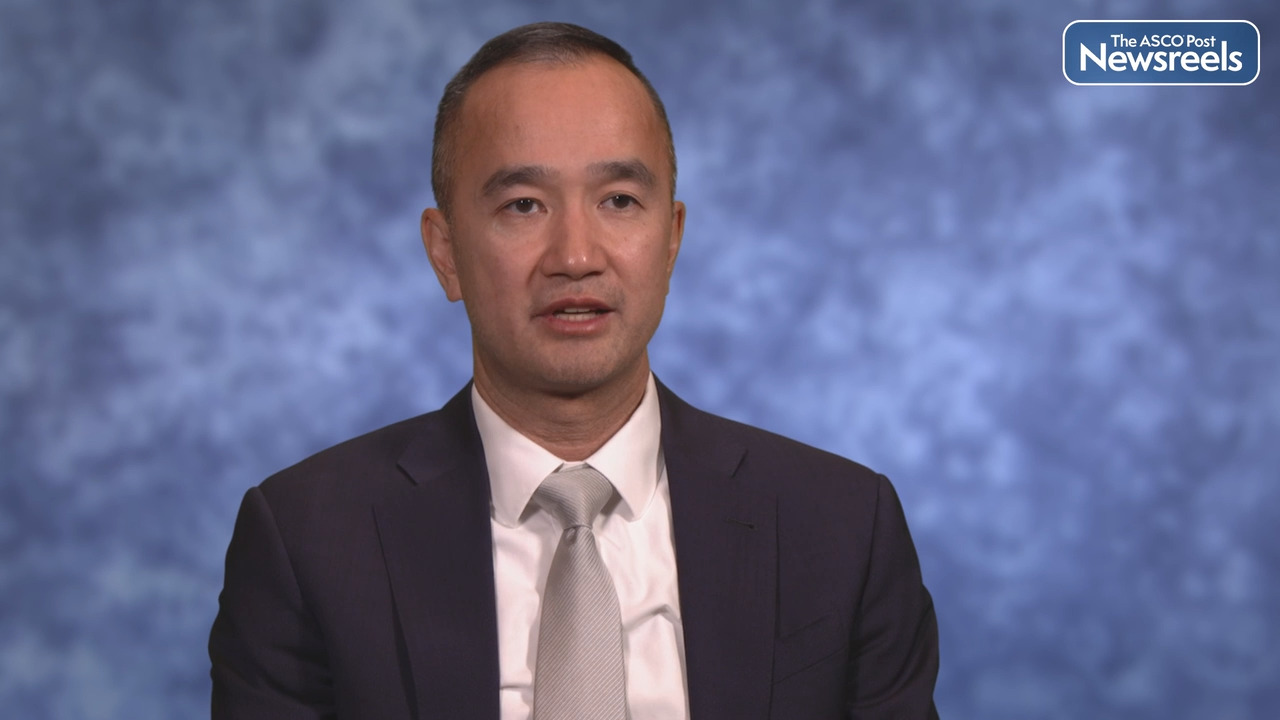Petros Grivas, MD, PhD, on Urothelial Cancer: New Data on Sacituzumab Govitecan-hziy and Pembrolizumab
2022 ASCO Genitourinary Cancers Symposium
Petros Grivas, MD, PhD, of the University of Washington and Fred Hutchinson Cancer Research Center, discusses results from Cohort 3 of the TROPHY-U-01 study, which assessed sacituzumab govitecan-hziy in combination with pembrolizumab in patients with metastatic urothelial cancer who experienced disease progression after platinum-based regimens (Abstract 434).
The ASCO Post Staff
Alfredo Berruti, MD, of Italy’s University of Brescia, discusses the first study to give adjuvant mitotane to patients with adrenocortical carcinoma, a rare disease with a high risk of relapse after radical surgery. Although theoretically this treatment may be clinically worthwhile, the findings suggest that the need for adjuvant mitotane should always be discussed on a case-by-case basis by the multidisciplinary team, and more study is warranted (Abstract 1).
The ASCO Post Staff
Axel Bex, MD, PhD, of The Netherlands Cancer Institute, discusses an efficacy, safety, and biomarker analysis of neoadjuvant avelumab and axitinib in patients with localized renal cell carcinoma who are at high risk of relapse after nephrectomy (Abstract 289).
The ASCO Post Staff
Karim Fizazi, PhD, MD, of Gustave Roussy and University of Paris-Saclay, discusses results from a first-in-human phase I/II trial, which showed that administering ODM-208—an oral, nonsteroidal inhibitor of the enzyme CYP11A1—to men with metastatic castration-resistant prostate cancer who were pretreated with abiraterone/enzalutamide and taxanes was effective in blocking the production of steroid hormones. It also showed antitumor activity, especially in men with AR mutation–positive cancers.
The ASCO Post Staff
Sumanta K. Pal, MD, of City of Hope National Medical Center, discusses some key research developments in kidney cancer, including data on nivolumab and ipilimumab with or without CBM588 in metastatic renal cell carcinoma; intestinal microbiome associated with the development of grade 3 or 4 adverse events in patients with metastatic disease who have been treated with nivolumab plus ipilimumab and probiotic support; the link between TERT promoter mutations and clinical outcome with immune checkpoint inhibitor therapy for advanced urothelial cancer; mutations in the androgen receptor gene in patients with prostate cancer receiving novel androgen deprivation treatments; and findings on waning antibody titers in patients who have received COVID-19 vaccinations (Roundup of Abstracts 371, 561, 374, Posters 38 and 48).
The ASCO Post Staff
Kim Nguyen Chi, MD, of the University of British Columbia, BC Cancer-Vancouver Center, discusses first phase III results from the MAGNITUDE study, which explored the use of the PARP inhibitor niraparib with abiraterone acetate and prednisone as first-line therapy in patients with metastatic castration-resistant prostate cancer with and without homologous recombination repair gene alterations (Abstract 12).





